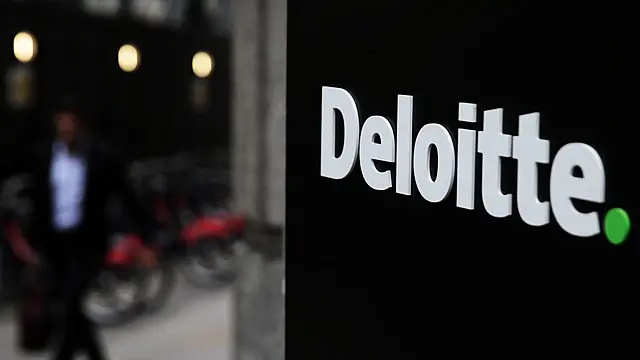The presentation of a budget is the high point in the annual political and fiscal calendar, throughout the world a budget can frequently break and occasionally make political careers.
The English word “budget” is derived from the Latin word “bulga” meaning leather bag or knapsack used for carrying supplies of food.
The challenge for any Minister for Finance is to prepare a budget that gets the balance right, it contains enough food to nourish the economy throughout the year while also ensuring the bag is light enough to be carried.
This challenge of striking the correct balance is made all the more acute because we are approaching the middle of the decade the World Economic Forum has referred to as the “turbulent twenties”.
Any budget will have to mitigate against the immediate concerns of cost of living and infrastructural provision while at the same time preparing a comprehensive response to climate risks which will have a greater impact.
Setting
Ireland’s ability to respond to and pre-empt these risks is greatly assisted by the fact that the Irish economy has been resilient in terms of performance.
While GDP growth is still healthy, the international headwinds will see a more moderate level of growth in 2023 than in previous years.
However, Modified Domestic Demand (MDD) shows a domestic economy performing well.
This is supported by the Labour Force Survey which tells us that unemployment fell to 4.4 per cent and that a record 2.64 million people were working at the start of summer 2023.
Exchequer figures to the end of August 2023 highlighted tax receipts of €53.1 billion were collected for the period, €3.3 billion ahead of the same period last year, driven primarily by growth in income tax, VAT and corporation tax.

Caution
Despite the positive mood music, the Minister for Finance (discussing the CSO’s MMD figures) warned of “several headwinds”, highlighting that “the Irish economy is clearly operating at full employment and capacity constraints, in both our housing and labour markets are increasingly binding”.
The latest exchequer figures also highlight that corporation tax receipts are exceptionally volatile, €1.8 billion was collected in August, down by €1 billion compared to August 2022.
It is against this backdrop that Budget 2024 will be framed.
Package
The Summer Economic Statement revealed that the total budgetary package will be €6.4 billion of which some €1.1 billion is earmarked for tax measures.
Indications are that we are likely to see an approach similar to the prior year budget, with the overarching priority for the Minister for Finance to balance “supporting households and delivering the infrastructure and public services that our society needs” while also avoiding “adding to the price pressures in our economy”.
Income tax
The Budget may look to protect workers from drifting into the higher 40 per cent income tax band as a result of wage inflation. This will likely be achieved by adjusting income tax bands.
Despite an increase in the income tax bands in the last budget, Ireland still operates an extremely low entry point of €40,000 per year for a single person for the 40 per cent rate of income tax to apply.

This system is uncompetitive in comparison to other countries, which is hampering businesses in their efforts to attract and retain talent.
In the last budget there were modest changes to the main tax credits, it is likely we will see similar increases again this year.
The Universal Social Charge (USC) may also be tweaked slightly, more in line with any changes to the minimum wage rate rather than any fundamental changes.
However, it’s worth noting that these changes to bands, credits and the USC made up over 90% of the cost of tax measures in last year’s Budget
On the topic of attracting talent to Ireland, the Special Assignee Relief Programme is too complex as it is currently structured.
This is intentional, partially to protect the Exchequer and partially to minimise the number of people claiming the relief. In an era where it is very difficult to attract employees to Ireland, this is an area that needs to be reviewed.
Cost of living
The rent tax credit was introduced in the last budget to assist households with the rapidly rising cost of renting however, the credit has had lower than expected uptake.
Changes to the credit to remove the age-based condition for relief in respect of students and increasing the amount of the credit would have a real and meaningful impact on the cost of living for tenants.
A possible re-introduction of mortgage interest relief or a new version of the relief was signalled by the Taoiseach recently.
It is expected that any measures will target certain mortgage holders dealing with the sharp hikes in interest rate of recent times.
The risk for government here is the balancing act of assisting homeowners while simultaneously preventing further increases in house prices and consequently the amount individuals will need to borrow.
Housing
Indications from the Minister for Finance are that the budget will include tax incentives for small landlords to remain in the rental market in priority to changes designed to make it more attractive for new investment in the sector.
The precise nature of the changes remain unknown at this point. Ideally the measures will address; the cost of building houses; focusing on converting commercial to residential; introduction of tax measures and incentives to renovate derelict and vacant properties; extension of Help to Buy scheme and enhanced VAT measures for emergency accommodation.
Enterprise
Earlier this year the Minister for Finance revealed he intends to take “a fresh look at all the enterprise tax measures on the table to assess whether they are working properly and fulfilling the potential that we know our economy can deliver”.
Such a review is welcome given that schemes such as the Employment Investment Incentive Scheme, Start Up Relief for Entrepreneurs and Key Employee Engagement Programme have, in general, not met their intended policy objectives and the administration involved is far too burdensome for small businesses.
Corporation tax
The 12.5 per cent corporation tax rate is staying.
We are however on the precipice of a fundamental change in global tax policy with the introduction of the new 15 per cent minimum tax rate for multinational groups with global turnover of at least €750 million.
The so-called “Pillar Two” rules will dominate the post-Budget Finance Bill in terms of the sheer volume of legislation.
These monumental changes do provide the opportunity now for Ireland to adopt more of a territorial regime of taxation, where the administration burden on companies would be significantly reduced.
This is a pivotal requirement along with taking the opportunity to simplify the complex, existing double tax relief provisions.
The Minister for Finance has set out a project plan towards the introduction of a form of territorial regime.
A participation exemption for foreign sourced dividends is expected for 2025, however, a foreign branch exemption is subject to ongoing consideration.
While this plan is welcome, it is disappointing that it does not coincide with the additional complexity being introduced by the “Pillar Two” rules.
Climate
According to the Deloitte Global Sustainability Survey, almost seven in 10 people view climate change as an “emergency”. Budget 2024 will have a role to play with regard to helping change people’s behaviour.
The trajectory for annual carbon taxes increases out to 2030 is set out in legislation. It is expected that an additional €7.50 per tonne of carbon dioxide emitted will apply from budget night for diesel and petrol, and from May 1st 2024 for all other fuels.
We are of the view that now is the time to introduce long term incentives to ensure that Ireland is well positioned to become a centre of excellence for renewable energy in the next decade.
What next?
The Minister for Finance is expected to deliver Budget 2024 on Tuesday, October 10th.
Whatever the details in the budget, it is vital that certainty, growth, and competitiveness are the focus in all top priority areas such as income tax, cost of living, corporation tax, housing, and climate change.
The balance of putting enough food in the bulga to do all we need to do over the coming years while also not overfilling it will be the fulcrum of the decisions to be taken by Government in the coming weeks.
We are in the fortunate position of having choices to make on how we distribute our resources.
For more perspectives on Budget 2024, and to assess its potential impact on your take-home pay on the day it’s announced, explore our dedicated Budget hub.








